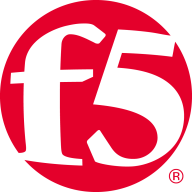

NGINX App Protect and Link11 compete in the web application security category. NGINX App Protect seems to have an upper hand in integration and flexibility, while Link11 focuses on easy user interface and comprehensive protection.
Features: NGINX App Protect provides flexibility in configuration, integrates well with other solutions, and offers control over HTTP sessions. Its open-source nature and strong bot protection are notable. Link11 offers robust real-time monitoring, effective DDoS protection, and a user-friendly dashboard for better security insights and mitigation strategies.
Room for Improvement: NGINX App Protect struggles with high throughput and pricing while needing more robust API exposure and improved support. It could also benefit from better integration with F5 WAF and more automation in policy handling. Link11's improvements could include better automatic reporting, enhanced bot management, and more intuitive dashboards. Its change management process also draws mixed feedback.
Ease of Deployment and Customer Service: NGINX App Protect offers deployment options like on-premises, hybrid, and cloud models. Customer service is responsive but expensive with occasional technical expertise lacking. Link11 focuses on cloud deployments with dedicated support, although some users report initial contact delays.
Pricing and ROI: NGINX App Protect is considered costly with high licensing fees but offers notable ROI from enhanced security. Link11's pricing is more flexible, offering negotiation and discounted arrangements. Users find substantial long-term benefits and flexibility in cost management with their MSSP solution.
They were quick and efficient when we had issues.
It is a quality solution, and I would rate its stability as eight out of ten.
There was more information from F5 regarding hardware requirements and specifications to deploy the service.
The GUI and web GUI configuration could be improved to be easier to manage and use.
The most valuable feature is the ability to operate in a DevOps environment and to be configured through API and pipeline by the developers themselves.
Detecting bots and blocking IPs have proven effective for securing applications.
It is stable, affordable, and easy to manage.
| Product | Market Share (%) |
|---|---|
| NGINX App Protect | 2.1% |
| Link11 | 1.0% |
| Other | 96.9% |
| Company Size | Count |
|---|---|
| Small Business | 5 |
| Midsize Enterprise | 3 |
| Large Enterprise | 2 |
| Company Size | Count |
|---|---|
| Small Business | 9 |
| Midsize Enterprise | 5 |
| Large Enterprise | 12 |
Link11, headquartered in Germany, offers cloud-based IT security services designed to prevent business disruptions, enhancing cyber resilience for IT networks and critical applications globally. Their services benefit industries across Europe, North America, and Asia with comprehensive protection.
Link11 provides a range of security and performance solutions, including Network Security, Web Application & API Protection, and Application Performance solutions. Their offerings encompass Network DDoS protection and an all-in-one WAAP solution, featuring Web Application Firewall, Web DDoS Protection, Bot Management, API Protection, and Secure CDN & DNS. A high-performance global network, monitored 24/7 by the Link11 Security Operations Center, ensures robust defense mechanisms.
What are the key features of Link11?Link11 is suited for industries wanting to protect web applications against Layer 7 DDoS attacks, cross-site scripting, SQL injection, and phishing attempts. Deployed on cloud models, Link11 integrates as a fundamental security layer, offering effective bot management and securing websites with multiple technologies.
NGINX App Protect application security solution combines the efficacy of advanced F5 web application firewall (WAF) technology with the agility and performance of NGINX Plus. The solution runs natively on NGINX Plus and addresses some of the most difficult challenges facing modern DevOps environments:
NGINX App Protect offers:
We monitor all Web Application Firewall (WAF) reviews to prevent fraudulent reviews and keep review quality high. We do not post reviews by company employees or direct competitors. We validate each review for authenticity via cross-reference with LinkedIn, and personal follow-up with the reviewer when necessary.